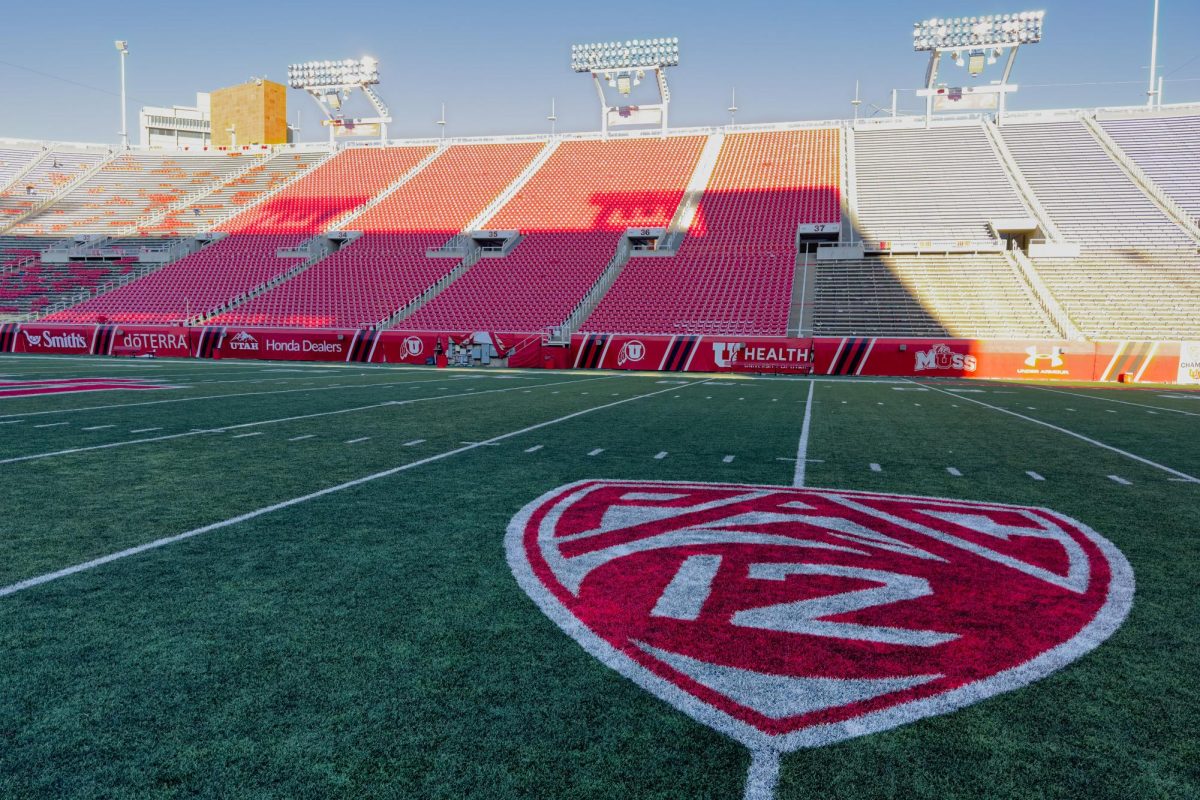On Aug. 4, 2023, the college sports world erupted after the University of Utah formally accepted an invitation to join the Big 12 Conference beginning with the 2024-25 academic year. Utah found themselves among a slew of Pac-12 schools trying to stay ahead of the curve, abandoning their former conference before its inevitable demise.
The Pac-12 has been a solid conference for decades. At the time of publication, the AP Top 25 College Football Rankings includes five current Pac-12 schools, one being the U. The Pac-12 has led or tied the nation in NCAA Championships in 56 of the last 62 years. And, the Pac-12 is the only collegiate conference with over 500 national championships.
It’s easy to see that the conference has been the pinnacle of athletics since its inception as a regional conference over 100 years ago in 1915. The Pac-12 is also known for phenomenal academics, making it one of the most prestigious conferences to play in.
The conference’s demise isn’t a matter of its athletic or academic success. The U has seen an overwhelming share of victories within and beyond athletics as a part of the Pac-12. So why did Utah decide to leave the Pac-12? Why did a conference with such a storied history seemingly implode in an instant?
A Mass Media Debacle
On May 4, 2011, the Pac-12 Conference, led by former commissioner Larry Scott, signed a 12-year, $3 billion media rights deal with FOX and ESPN. Shortly after, the league expanded to the conference that’s familiar today by adding Utah and Colorado.
Since its initial agreement, the conference’s media rights deal has been fruitful for all those involved. The Pac-12 Network was established as a one-stop shop for all Pac-12 sports. Millions of spectators watched premier Pac-12 bouts such as the 2022 Utah v. USC championship game, and revenue was flowing.
In the midst of all that was seemingly good, other conferences began to secure more lucrative media deals and the Pac-12 began to fall behind. However, with the agreement from 2011 set to expire in 2024, the conference was given an opportunity for new life. Talks between university presidents, school athletic directors and Pac-12 Commissioner George Kliavkoff commenced.
According to insider reports, these negotiations faltered after Kliavkoff presented a proposed media deal with Apple that would pay each school $23 million. The deal supposedly failed to guarantee that Pac-12 athletic contests would be broadcast on other linear or traditional broadcast networks.
In their further analysis of the media deal, the U ultimately decided a more promising situation could be found elsewhere. The importance of athletics being presented on national television was far more critical than some may have realized. University of Washington President Ana Mari Cauce said it best in a conference call reported by CBS News: “This was about national visibility for our players.”
It’s not a far-fetched possibility that Utah’s board and athletics staff held a similar sentiment to the one presented by Cauce. Despite the enticing proposal, the reality of Utah sports being locked behind a subscription-based model would’ve hindered the U’s ability to market athletes and teams, as well as promote growth to new audiences. With new opportunities for athletes to make money in full swing — and greatly impacting recruiting and retention — the Apple proposal would have ultimately hurt more than helped.
In the end, the more aggressive of the bunch came out as victors. Brett Yormark, the commissioner of the Big 12, championed a $2.3 billion media deal with ESPN and FOX late last year that attracted the U. As reported by AP News, “Utah will receive a full share of the $31.7 million each Big 12 school expects to earn from the league’s media deal starting in 2025.” Moreover, the Utes will have an opportunity to join what is touted as the nation’s most competitive conference for collegiate basketball.
“I will say that the thing I am most excited about with this television dynamic … it’s with two of the major providers in FOX and ESPN,” said Utah Athletics Director Mark Harlan in an Aug. 7 press conference. “This does position us to have a lot of visibility going forward. And I think that’s what I’m most excited about.”
New Beginnings on the Horizon
Going forward, there’s a lot to be excited about in regards to the Utes’ new position within the Big 12 conference. In an ever-changing college athletics landscape, where media rights and revenue are the name of the game, Utah came out on top. It’s a shame that it had to come at the cost of the Conference of Champions’ dismantlement, but it offers a boatload of new opportunities for a variety of Utah athletic programs.


